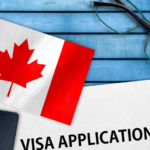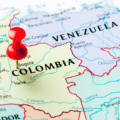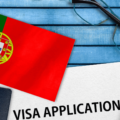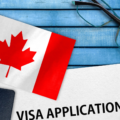Are you brainstorming how to blend travel and remote work as 2024 unfolds? The Croatia Digital Nomad Visa offers the perfect solution for non-EU/EEA nationals seeking a picturesque coastal office.
Our guide will chart the course, providing essential information from eligibility to application steps, ensuring your Croatian remote work adventure starts seamlessly. Read on for insights that open doors to new horizons!
Key Takeaways
- Croatia offers a Digital Nomad Visa for non-EU/EEA citizens wanting to work remotely while living there. The visa allows up to a year’s stay and requires proof of income, health insurance, and a clean criminal record.
- Applicants must show monthly income at least 2.5 times the average Croatian salary (around 2,539.31 EUROS), have valid health insurance coverage, and present necessary personal documents including passport photos.
- The process includes choosing an application method, submitting paperwork online or at an embassy, paying visa fees, registering temporary residence in Croatia upon approval, and obtaining a biometric residence card.
- Costs include the visa application fee that varies by country, health insurance expenses depending on coverage length and provider choice as well as legal costs for translating documents when needed.
- While the digital nomad visa doesn’t renew automatically after one year and requires applicants to leave for six months before reapplying, family members can accompany with proper documentation showing financial stability.
Understanding the Croatia Digital Nomad Visa

Croatia welcomes remote workers with its digital nomad visa, a special pass for non-EU/EEA citizens. This unique type of visa lets you live in the beautiful country while working for a foreign employer or on your own projects.
You get to enjoy Croatia’s stunning coastlines and historic cities without worrying about usual tourist visa limits.
With this visa, digital nomads can stay for up to a year, embracing the local culture and lifestyle. It’s different from regular work visas because it doesn’t lead to permanent residence or citizenship.
Instead, it offers a temporary home base where you can combine work with exploration in places like Dubrovnik or Split. Remember that health insurance is necessary to secure this permit.
Also, make sure your passport is valid for your entire stay so you can travel worry-free!
History of the Croatian Digital Nomad Visa

Now that we’ve covered the basics of what the Croatia Digital Nomad Visa is, let’s take a step back in time. The idea for this special permit started with a tweet in 2019. Jan de Jong, a Dutch entrepreneur living in Croatia, suggested it on social media.
By July 2020, his proposal caught attention and support from Croatian Prime Minister Andrej Plenković.
Excitement grew as the government worked quickly to make it happen. Changes to the Foreigners Act were made by December 11, 2020. That’s when digital nomads got tax breaks on their income – a big draw for many! This move put Croatia on the map as one of few countries offering such benefits to remote workers worldwide.
It showed how fast governments could act when innovation knocks at their door!
Eligibility Criteria for the Croatian Digital Nomad Visa
You want to enjoy Croatia while working remotely? The Digital Nomad Visa might be perfect for you. But first, you need to meet some requirements.
- Have a valid passport or another travel document. It should be good for at least three months after your stay ends.
- Prove your remote work status. You’ll need documents showing you work for a company outside of Croatia or that you’re self-employed.
- Show enough monthly income. This must be at least 2.5 times the average Croatian salary—that’s about 2,539.31 EUROS per month.
- Get health insurance that covers your time in Croatia. Remember, it is different from the state health system there.
- Provide a clean criminal record from your home country. Croatia needs to know your history for safety reasons.
- Plan your stay with a temporary address. Once there, get a notarized rental agreement or a statement from your landlord.
- Apply using the correct form – Application Form 1a is what you need for this visa type.
- Ready all necessary personal documents. Think about birth certificates and marriage certificates if family members will join you.
Benefits of the Croatian Digital Nomad Visa
Live and work in one of Europe’s most stunning countries with the Croatian Digital Nomad Visa. Enjoy up to a year soaking in the Adriatic sun, wandering through ancient streets, or networking within the local digital nomad community.
Croatia offers an amazing blend of old-world charm and modern amenities perfect for remote work—think reliable internet, cozy coworking spaces, and friendly locals.
This visa not only lets you experience Croatia’s rich culture but also shields your working income from local taxes. Get ready to check emails by the Dalmatian coast or take calls overlooking Plitvice Lakes National Park without worrying about double taxation on your hard-earned money.
With lower living costs compared to many other European nations, you can invest more in experiences—and less on expenses.
Requirements for the Croatian Digital Nomad Visa
The Croatian Digital Nomad Visa offers great perks, but you must meet specific requirements to qualify. Here’s what you need to prepare:
- You’ll need proof of work. Show that you’re a digital nomad or remote worker for a company outside of Croatia.
- Have enough money. Monthly income requirement is about HRK 16,142.50 or HRK 193,710 for a year.
- Get health insurance. It must cover your entire stay in Croatia.
- Find a place to live. Provide proof of your temporary address in Croatia.
- Pass the criminal background check from your home country.
- Complete the application form. Fill it out in Croatian or English.
- Gather travel documents. These include your passport and photos sized as required.
- Pay administrative fees. Be ready with cash, credit cards, or bank transfers to pay visa and residence permit costs.
- Prepare extra documents if needed. Depending on your situation, more paperwork might be asked for.
Application Process for the Croatian Digital Nomad Visa
Navigating the application process for Croatia’s Digital Nomad Visa might seem daunting, but with our comprehensive guide, you’ll have all the insider knowledge to make your journey toward Croatian shores as smooth and straightforward as possible—read on to uncover every step.
Choosing the Application Method
You have a couple of ways to apply for your Croatian digital nomad temporary residence permit. You can go online, fill out the form, and send it straight to the police in Croatia. This is quick and easy.
If you need a visa before entering Croatia, or if you prefer talking to someone face-to-face, visit an embassy or consulate.
Some people like doing things on their computer while others want help from a staff member. Either way gets your application where it needs to go. Check with local diplomatic missions about making an appointment or what documents they might need from you.
With these options, getting started on your Croatian adventure is just steps away!
Submitting the Application
Submitting your application for the Croatian Digital Nomad Visa is a critical step. Get all your documents ready and follow these steps to send in your application.
- Check that you have all necessary documents, including proof of health insurance and means of subsistence.
- Translate any non – English documents into English or Croatian.
- Complete the online application form accurately. Be sure to fill out every section.
- Attach electronic copies of your identification document, like a passport photo page.
- Include financial evidence showing you meet the minimum income requirements.
- Submit proof of accommodation in Croatia, whether it’s a rental agreement or hotel booking.
- Print out the completed application form once you’ve filled it in online.
- Gather all these items and make an extra copy of each for your records.
- Choose where to submit: Apply at a Croatian embassy, consulate, or local police station if already in Croatia.
- Send the printed form and supporting documents via mail or deliver them in person as required by your chosen submission location.
- Keep the receipt given after submitting your application; it will come in handy later on.
Paying Visa Fees
Once you’ve submitted your application, the next step is to take care of the visa fees. You must pay these fees to move forward with your Croatian Digital Nomad Visa. Fees will differ based on how long you plan to stay and what you need for your trip.
Remember, this money isn’t given back if there’s a problem with your application.
Choose from several ways to pay, like online, bank transfer or at certain locations in person. Make sure to keep proof that you paid. This shows that you meet all financial requirements for the visa process.
If you don’t provide proof of payment or if the fees aren’t paid correctly, expect delays or even a no-go on your visa request.
Waiting for Approval
After your visa fees are paid, the next step is to wait for approval. This period can feel like a test of patience. Remember, it usually takes 2 to 3 months to hear back about your Croatian digital nomad visa.
You might get notified in different ways, like an email or a call. It’s important not just to sit and wonder though. Use this time wisely! Maybe start planning your move or look into great spots in Croatia for digital nomads.
Keep all documents handy during this waiting phase. Officials might ask for extra information before they say ‘yes’ to your application. Stay prepared and respond quickly if they reach out—it could speed things up! While you wait, think about where you’d want to live in Croatia or how you’ll manage taxes as a non-resident working remotely.
Registering Temporary Residence
You just got approved for your Croatia Digital Nomad Visa, great! Now, you need to register your temporary residence in Croatia. Here’s how:
- Find a place to live. You must have an address in Croatia to register.
- Gather your documents. You will need legalized documents proving who you are and where you’re staying.
- Visit the local police station. Go to the one closest to your Croatian address within 30 days of arriving.
- Fill out the application form. The police will give you a form for temporary stay registration – complete it carefully.
- Show proof of health insurance. Make sure your policy covers your entire stay.
- Provide a photo. The police need a recent, passport – sized picture of you.
- Pay the administration fee. Costs can vary, so check the latest fees before heading to the station.
- Wait for confirmation. The police will process your forms and give you proof of residence registration.
Obtaining a Biometric Residence Card
Getting your biometric residence card is a key step as a digital nomad in Croatia. It’s your proof of legal stay and lets you move freely within the country.
- First, apply for a Croatian Digital Nomad Visa.
- After approval, head to the local police station in Croatia to start your biometric residence card process.
- Bring your passport and visa approval with you.
- Take two passport – size photos to submit.
- Provide your fingerprints; the police will help guide you through this part.
- Pay the administrative fee for processing; each region might have different costs.
- Keep the receipt showing you paid the fee; you’ll need it later.
- Wait for around three weeks after applying, then return to pick up your card.
Costs Associated with the Croatian Digital Nomad Visa
As you prepare to embrace the digital nomad lifestyle in Croatia, it’s crucial to understand the financial implications that come with obtaining the country’s Digital Nomad Visa. Here’s a breakdown of the costs you should anticipate:
| Cost Item | Description | Estimated Cost (USD) |
|---|---|---|
| Visa Application Fee | Charged for processing your visa application | Varies by country |
| Health Insurance | Must cover the entire duration of your stay | Depends on provider and coverage |
| Proof of Funds | Financial means requirement is at least 2.5 times the average monthly net salary in Croatia | Proof of sufficient funds |
| Legal and Translation Fees | Costs for legalizing and translating documents | Varies based on document type |
| Residence Registration Fee | Fee for registering your temporary residence | Small administrative cost |
| Biometric Residence Card | Issued upon approval of your visa | Additional fee required |
Remember, these figures serve as general guidelines. Specific costs may fluctuate based on individual circumstances and policy changes. Always double-check with the Croatian Ministry of Interior or the official website for the most up-to-date information. Your journey to Croatia warrants meticulous financial planning, but the adventure awaiting in this Mediterranean haven promises to be worth every cent.
Processing Time for the Croatian Digital Nomad Visa
Getting your Croatian Digital Nomad Visa takes about 2 to 3 months. Once you apply, be ready to wait for this time to hear back on your approval. The government will let you know if they approve your stay in different ways.
You might get an email, a letter, or a phone call.
After you get the green light for your temporary stay, there’s more to do. You must register where you live and go through another step – getting a biometric residence card. For this card, bring passport photos and give your fingerprints at the local police station.
Show them that you’ve paid all needed fees too. Pick up your new biometric card three weeks later from when they say it’s ready. Remember, these steps are key to starting your digital nomad life in Croatia!
Paying Taxes as a Digital Nomad in Croatia
Croatia offers a special tax exemption for digital nomads. This means you don’t pay Croatian income tax on the money you earn working remotely for non-Croatian companies. You must provide proof that you’re earning from outside Croatia and meet all visa conditions.
Make sure to keep records of your work contracts and payments, as authorities might ask for these.
You also need to know about the value added tax (VAT). If you buy goods or services in Croatia, VAT is often included in the price. As a digital nomad, it’s not likely that you’ll have to charge others VAT unless you start doing business with local clients.
Getting healthcare and understanding your policy is important too. After taxes, consider how health insurance works if family members come along.
Can Family Members Accompany the Visa Holder?
Family members can join the adventure as digital nomads settle into life in Croatia. They’ll need to bring important documents like marriage and birth certificates, all properly legalized and translated.
It’s more than just paperwork—each family member has to show they have enough money and proper health insurance.
Money matters here: relatives must prove they can cover at least 2.5 times the average Croatian monthly salary. Everyone needs a place to call home, so a registered Croatian address is part of the deal too.
Getting set up takes a little patience, with applications often taking 2 to 3 months to process. But once approved, families can enjoy everything Croatia offers together!
Duration and Renewal Process of the Croatian Digital Nomad Visa
Croatia’s digital nomad visa lasts for up to a year. You can’t renew this visa and must leave for six months after it expires.
- Your stay starts from the date you put in your application.
- Plan ahead because you can stay for a maximum of one year with no chance to extend.
- Leave Croatia for at least six months before you can apply for a new digital nomad visa.
- Check the Croatian Ministry of Interior website for updates on policies that might change this rule.
- Keep track of your visa end date so you don’t overstay by mistake.
- If you want to live in Croatia longer, look into other visas or permits like a temporary residence permit.
Best Places to Stay in Croatia as a Digital Nomad
Zagreb, the capital of Croatia, has a lively tech scene and lots of coworking spaces. It’s perfect for digital nomads who love city life but still want green parks nearby. Cost of living is reasonable, and you’ll find cafes with fast Wi-Fi on almost every corner.
For a more relaxed vibe, check out Split or Dubrovnik on the Adriatic coast. These cities boast stunning sea views and rich history—think Diocletian’s Palace right at your doorstep in Split.
The islands like Hvar offer gorgeous retreats away from the hustle, ideal for when you need to focus on work or just chill under the sun. Plus, being part of Schengen countries isn’t required here; enjoy easy access without an entry visa hassle.
Conclusion
Croatia welcomes digital nomads with open arms and a dedicated visa. Imagine working with the Adriatic Sea’s views – it’s all possible here. Remember, while you enjoy the sunsets and local cuisine, keep your paperwork tidy.
Croatia might just be the perfect spot for your next remote office! So pack up, get connected, and dive into this Mediterranean gem as a digital nomad.
FAQs
1. What’s a Croatia digital nomad visa?
A Croatia digital nomad visa lets you live and work remotely in Croatia’s stunning places, like the Dalmatian Islands, for up to one year. It’s perfect if you’re not looking for permanent residency just yet.
2. Do U.S. citizens need this visa to work in Croatia?
Yes, even as a U.S. citizen, you’ll need this special temporary visa to legally earn income while soaking up the sun on those Dalmatian shores.
3. Can this visa lead to living in the Schengen area longer?
Well, getting your foot in the door with Croatia’s visa doesn’t grant entry into other Schengen Zone countries—each place has its own rules—but it’s a start!
4. Will I still pay US taxes while working abroad?
You bet! Even lounging by Croatia’s Adriatic Sea, as a tax resident back home, you must file that federal tax return and possibly use foreign tax credits or exclusions.
5. Are there benefits with Croatian banks for digital nomads?
Sure thing – Croatian banks are ready for global citizens; they accept international payment methods like MasterCard and American Express too!
6. What if my work takes off and I make more money abroad?
Hey, that’s great news! Just remember foreign-earned income might mean extra paperwork with bureaux de change or keeping an eye on something called “foreign housing exclusion”. And yes…taxes again.

























